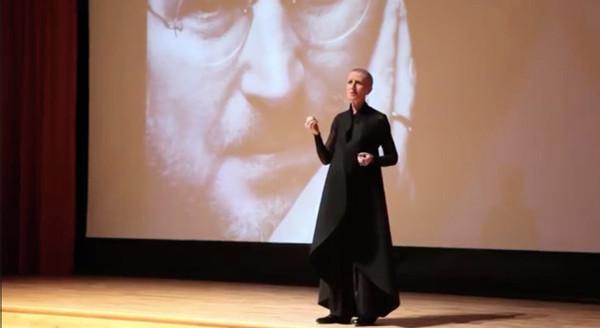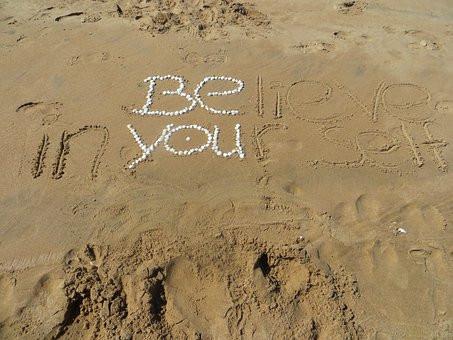The art of being yourself | Caroline McHugh | TEDxMiltonKeynesWomen
Curated from: TEDx Talks
Ideas, facts & insights covering these topics:
9 ideas
·2.33K reads
15
1
Explore the World's Best Ideas
Join today and uncover 100+ curated journeys from 50+ topics. Unlock access to our mobile app with extensive features.
How other people see you
When you look in a mirror, the face looking back at you isn't the face that everybody else sees. It's a reversed, somewhat distorted image.
The True Mirror was invented by a brother and sister team in New York. They discovered if you put two mirrors together at right angles and remove the seam, the images bounce off each other. This is what other people see when they look at you.
When you look in a regular mirror, you look for reassurance that you're beautiful, young, or tidy. When you look in a True Mirror, you see yourself differently. You look for revelation, not for reassurance.
41
327 reads
Being unique
When you look at truly remarkable individuals, not monetarily successful, but people achieving what they set out to do, you'll find that the one thing they have in common is that they have nothing in common.
They have managed to find their unique gift and put that at the service of their goals. We often refer to these people as larger than life. It is remarkable to see them in the full flow of their humanity. They shine, they gleam.
However, most of us don't take up nearly the space the universe intended for us.
42
279 reads
Who do you think you are?
Your job is not to copy remarkable individuals. Your task is to be as unlike them as you can possibly be. You have to be as good at being you as they are at being them.
So, ask yourself, 'Who do you think you are?' Just be yourself, because when you're yourself, you're fabulous.
41
299 reads
How to be yourself
Where you were born, when you were born, and to whom you were born all have a particular influence or impact on how you become who you are.
Figure out what you expect from life and what life expects from you. A good starting point where you were fantastic at being yourself is when you were a kid under five.
- As a kid, you don't know how to disguise your differentness.
- As you grow older, society's archetype emerges, and you become more self-conscious and less good at being yourself.
- When you're wrinkly, you are also good at being yourself. You become less compromising and more honest.
43
252 reads
The hourglass effect
We are authentic when we're very young and when we're old, but in the middle, we develop the "I complex." The hourglass model helps you figure out which "I" you mean when you say "I".
- If you have a superiority complex, you think you're the most important person in the room.
- If you have an inferiority complex, you suffer from an over-modest self-regard.
- Both are signs of a fragile ego.
A third way is a made-up word called 'interiority. ' where you know that nobody can be like you. Other people have their things, but you have yours. Theirs can never compare to yours.
41
243 reads
Your adaptive personality
When you figure out how to be yourself, it's incredibly liberating. You're not just somebody's boss or somebody's mom. You're yourself.
While you can never be perception-less, you can be perception-free. Tune into what you would like everybody else to think of you. It's not about being fake but about potential.
40
247 reads
Intervals of possibility
You're already different. Your job is to figure out how and then become more of that.
At certain times, your life will lend itself to change. It will make change quicker and deeper. These are intervals of possibility.
You meet a stranger at a bar, or your boss offers you a new job. You know if you make the change the speed of your life will change. Some of these intervals of possibility are catastrophic. Someone you love will get sick, or you'll get sick, or you'll get fired, or a tsunami happens.
39
228 reads
Your ego: What you think of you
On the one extreme of your ego, you feel on top of the world. On the other extreme, you have days where nothing works. Your legs don't work, your mouth doesn't work.
Your entire life is about building a stable relationship with your ego. Your challenge is to take the ego from its dominant position and put it in service to yourself. That's when it becomes useful. In order to do that, you have to find the point in the middle of those two extremes. The confidence that comes from there is what you're after.
41
216 reads
Your life is your message
You may not be as big a message as Gandhi's but your life has to be your message.
So, when you think about your identity and what it means to be alive, you're not your thoughts. You can't be your feelings. You're not what you have, nor what you do. You're not even who you love or who loves you. There's something underneath that. If you can tap into that, you'll never feel superfluous again.
43
239 reads
IDEAS CURATED BY
The first step in the acquisition of wisdom is silence, the second listening, the third memory, the fourth practice, the fifth teaching others.
CURATOR'S NOTE
Wisdom From Ms Caroline McHugh, CEO of IDOLOGY.
“
Nicholas J.'s ideas are part of this journey:
Learn more about personaldevelopment with this collection
Cultivating self-awareness and self-reflection
Prioritizing and setting boundaries for self-care
Practicing mindfulness and presence
Related collections
Similar ideas
Read & Learn
20x Faster
without
deepstash
with
deepstash
with
deepstash
Personalized microlearning
—
100+ Learning Journeys
—
Access to 200,000+ ideas
—
Access to the mobile app
—
Unlimited idea saving
—
—
Unlimited history
—
—
Unlimited listening to ideas
—
—
Downloading & offline access
—
—
Supercharge your mind with one idea per day
Enter your email and spend 1 minute every day to learn something new.
I agree to receive email updates





